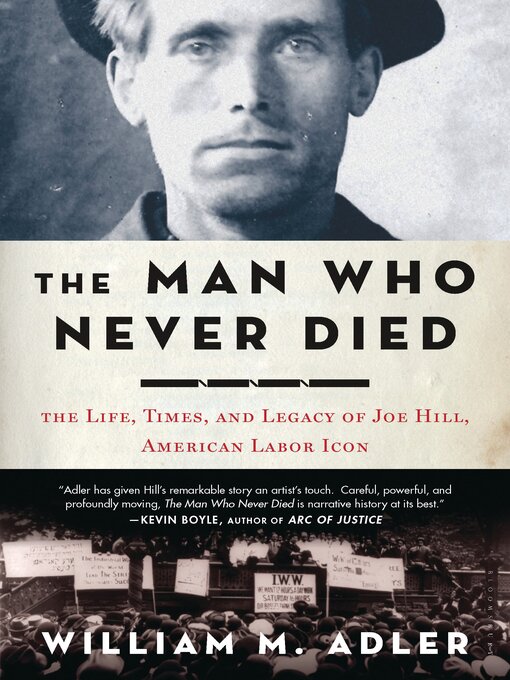In 1914, Joe Hill was convicted of murder in Utah and sentenced to death by firing squad, igniting international controversy. Many believed Hill was innocent, condemned for his association with the Industrial Workers of the World-the radical Wobblies. Now, following four years of intensive investigation, William M. Adler gives us the first full-scale biography of Joe Hill, and presents never before published documentary evidence that comes as close as one can to definitively exonerating him.
Joe Hill's gripping tale is set against a brief but electrifying moment in American history, between the century's turn and World War I, when the call for industrial unionism struck a deep chord among disenfranchised workers; when class warfare raged and capitalism was on the run. Hill was the union's preeminent songwriter, and in death, he became organized labor's most venerated martyr, celebrated by Woody Guthrie and Bob Dylan, and immortalized in the ballad "I Dreamed I Saw Joe Hill Last Night."
The Man Who Never Died does justice to Joe Hill's extraordinary life and its controversial end. Drawing on extensive new evidence, Adler deconstructs the case against his subject and argues convincingly for the guilt of another man. Reading like a murder mystery, and set against the background of the raw, turn-of-the-century West, this essential American story will make news and expose the roots of critical contemporary issues.


